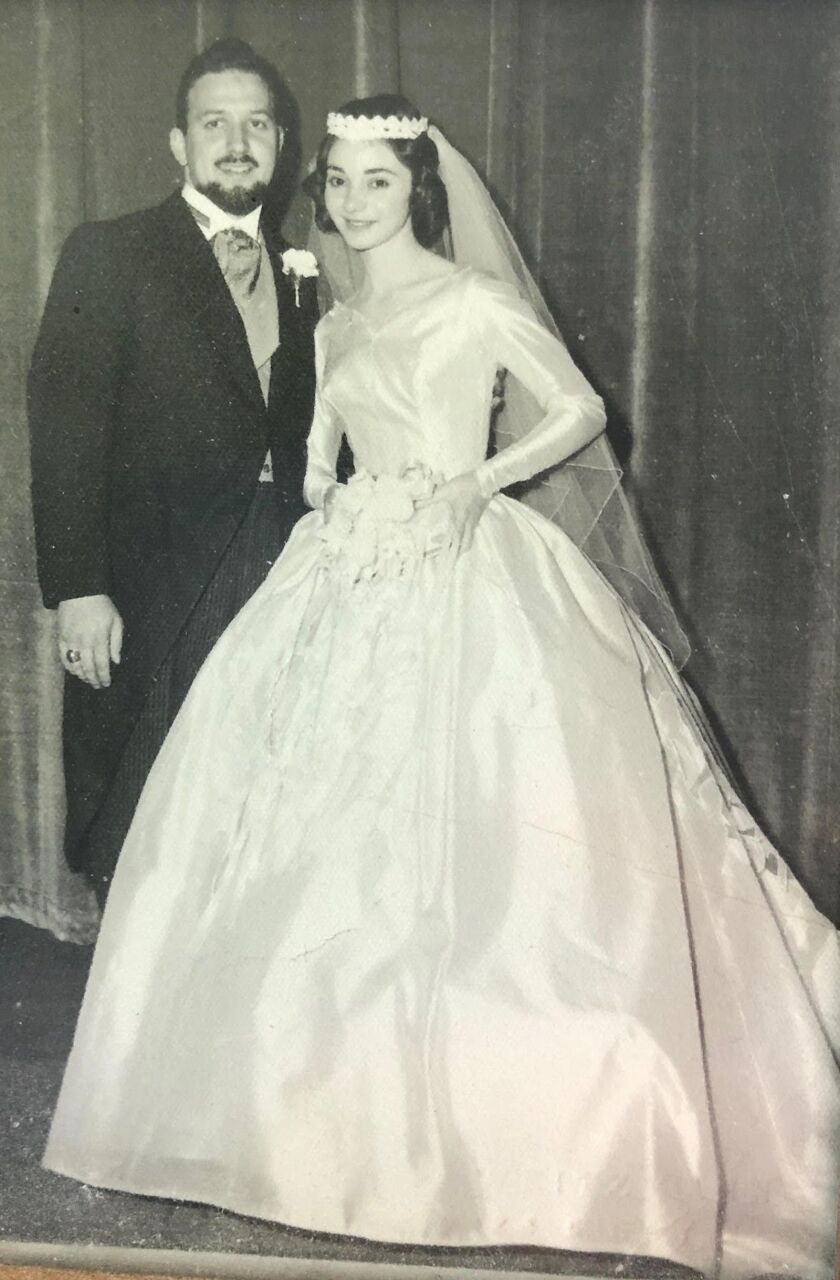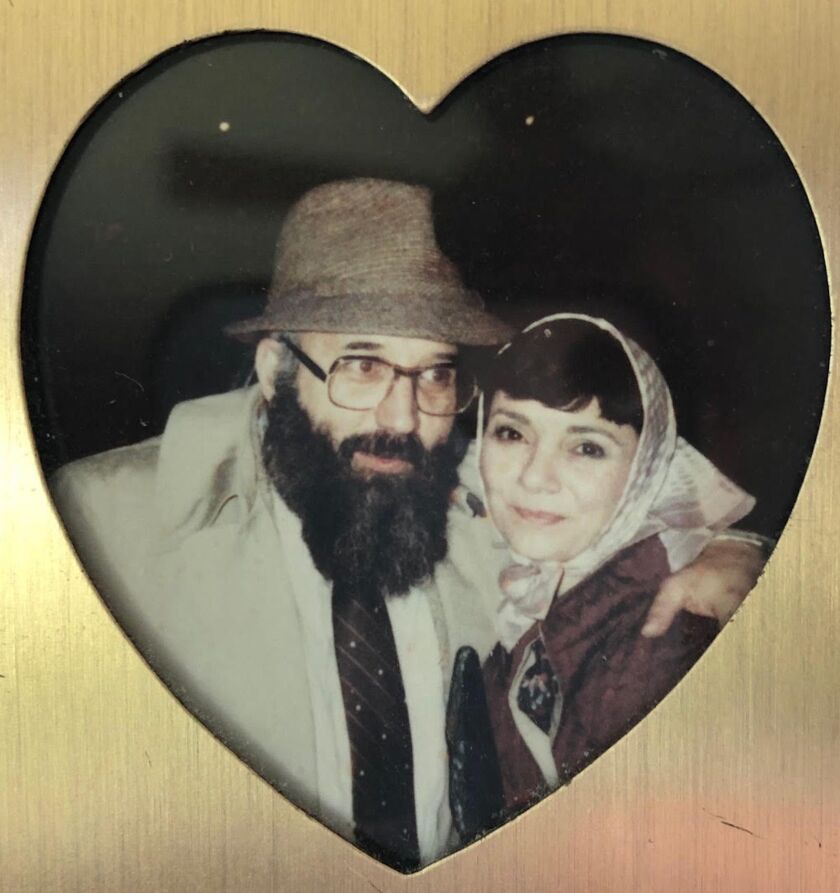Rabbi Leo Wolkow influenced generations of Jewish kids throughout the Midwest who attended a summer camp in Wisconsin that deepened their religious faith, fostered lifelong friendships and even led to marriages.
Rabbi Wolkow, who died last month at 87, helped run Olin-Sang-Ruby Union Institute, the nation’s oldest Reform Jewish overnight summer camp. Its alums include comic Joe Mande, who’s written for “The Good Place” and “Parks and Rec,” Olympic gold medal swimmer Garrett Weber-Gale, Olympic bronze medal skater Jason Brown and Daniel B. Shapiro, who was U.S. ambassador to Israel during the Obama administration.
OSRUI was founded in 1952 by Chicago-area synagogues and the Union for Reform Judaism, made up of 850 congregations in North America, according to OSRUI director Solly Kane. It’s located on 220 acres in Oconomowoc, Wisconsin, a two-hour drive from Chicago.
As at other summer camps, the kids — from second through 12th grade — swim, sing around the campfire and try canoeing, horseback riding, archery, rock-climbing, talent shows, and arts and crafts. They also participate in Hebrew lessons, Israeli dancing and religious services.
Rabbi Wolkow began teaching at OSRUI in 1965. “He would find scholarships for kids who couldn’t afford it,” Rabbi Ellen W. Dreyfus said.
Gregarious and warm, he’d hand out Tootsie Rolls and play baseball, softball and basketball with campers.
Also, according to Helen Wolkow, his wife of 62 years, “He insisted he could teach anybody [to read] Hebrew in four hours.” She said usually, “it worked.”
“He was someone we called a camp rabbi or a youth rabbi,” said Michael M. Lorge, a former camper who’s on OSRUI’s board. “His sense of humor, the twinkle in his eye when he gave a camper a teasing hard time. Or when he was pitching for the staff in baseball, and he’d get a camper out who was really athletic and do that little dance. It was always to engage with the campers at their level, and that made it possible for him to be a very fine teacher.”
“He was a lot of fun,” said former camper Steve Wolf, who chairs the OSRUI board. “He really was able to reach kids.”
“He influenced a generation, and then their children through them and their children’s children,” his wife said. “He married a lot of people, and he buried a lot of people, and he officiated so many bar and bat mitzvahs.”
Rabbi Wolkow encouraged young Jewish people to visit Israel and continued to mentor them through college. Some are now in their 60s but still refer to themselves as “Rabbi Wolkow’s kiddos.”
Many met future spouses at OSRUI. “There were so many romances that came out of that camp,” according to his wife.
“Just walking down the street the other day in Lincoln Park, I saw somebody with an OSRUI shirt,” Wolf said.
He said his daughter, arriving at her first job in Washington, D.C., met a coworker, also new, and, while talking, “They realized they had gone to OSRUI.”
Young Leo grew up in Roxbury, Massachusetts. The son of Russian Jewish parents, he was proud to have attended the prestigious Boston Latin School.
He got a bachelor’s degree in physics at Brandeis University and a master’s in education from Boston University, then went to rabbinical school at Hebrew Union College-Jewish Institute of Religion in New York.
Rabbi Wolkow met his future wife when they were counselors at Camp Tevya in New Hampshire.
“He had on a New York T-shirt,” she said, “and I went up to him and asked, ‘Are you from New York?’ He told me, ‘I’m busy.’ He thought I was a camper.”
From 1962 to 1964, he was an Army chaplain at the Pentagon and in Verdun, France.
Starting in the mid-1960s, he was a rabbi at Temple B’nai Yehuda at 82nd and Jeffery, remaining with the congregation for 37 years, during which it moved to Homewood. After merging with Congregation Beth Sholom of Park Forest, it became B’nai Yehuda Beth Sholom and now Shir Tikvah.
“A rabbi doesn’t stay at a congregation for decades if they don’t get along,” Dreyfus, who succeeded him, said at his service. “This congregation and this rabbi loved each other, nurtured each other, respected each other and grew together.”
He and his wife loved travel, visiting 93 countries. “I wanted to hit 100,” she said, “but we didn’t make it.”
They spent a year in Israel in charge of young people on a program of study, travel and living on a kibbutz.
After retiring, he was a visiting rabbi in Lake Charles, Louisiana, and a chaplain on cruise ships and often could be found playing tennis at the H-F Racquet & Fitness Club in Homewood.
Rabbi Wolkow also is survived by his daughters Lisa and Rachel and son Jason.








